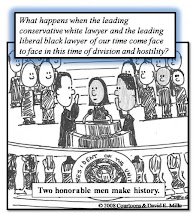
Stumbled upon this piece in a google first amendment search. Might be interesting if someone doing insurance law wanted to comment about it.
A task force exploring how to shrink state-backed Citizens Property Insurance Corp. recently recommended repealing 2003->Ch0631->Section 65" target=new>the FIGA statute because some Citizens customers are reluctant to switch to a private insurer for fear it will fold.
"It would be helpful to smaller insurers if they could say they are backed by FIGA," said Bill Newton, executive director of the Florida Consumer Action Network. "Consumers don't understand the mechanics of the business and how a small company is required also to be able to pay claims."
Mark Riordan, a spokesman for Ormond Beach-based Security First Insurance Co., calls the statute a "heinous example of censorship."
"It certainly does seem to create constitutional issues," said Carol Jean LoCicero, a Tampa attorney who is on the board of the Florida First Amendment Foundation. There is a 1977 U.S. Supreme Court ruling that a town's ban on most signs advertising the sale of property may not impair the flow of truthful and legitimate commercial information.
Sandy Robinson, executive director of FIGA, said the statute exists so people don't choose what they consider lower quality insurers because they assume the state will back them up. Robinson said insurers should be able to provide some information about FIGA without using it as a marketing tool. She said perhaps FIGA can work with agents to develop a pamphlet for policyholders that describes FIGA's role.
My gut reaction is that it is an infringement on commercial speech and it is therefore susceptible to a legal challenge.
































No comments:
Post a Comment